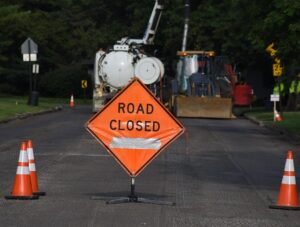 Workers’ Compensation Claims for Hearing Loss and What You Need to Know
Workers’ Compensation Claims for Hearing Loss and What You Need to Know
If you experience a serious injury at work, can you get workers’ comp for hearing loss? And what might hold you back from getting the benefits you need and deserve?
As a Memphis workers’ compensation lawyer with over 40 years of experience, I’ve seen firsthand how devastating hearing loss can be for employees.
It could be caused by long-term exposure to loud noises, equipment malfunctions, or even chemical exposure. But if it happened on the job, you may be entitled to workers’ compensation benefits.
So here’s how hearing loss claims work, what you need to prove, and how to make sure your rights are protected.
What Causes Work-Related Hearing Loss?
Hearing loss can be caused by a variety of issues in the workplace. But the most common cause is prolonged exposure to loud noises.
For example, workers in industries like construction, manufacturing, and music often face environments with high noise levels. Over time, repeated exposure to these loud sounds can damage the hair cells in the inner ear, leading to hearing loss.
With that in mind, some common causes of work-related hearing loss include:
- Loud factory machinery or equipment
- Motor vehicles or aircraft engines, and
- Construction site drills and other loud equipment.
In addition, certain chemicals (“ototoxicants”) used in industries like manufacturing, mining, or agriculture can also lead to hearing problems.
If you believe your hearing loss is related to your work environment, you may have the right to file a workers’ comp claim for benefits.
 Can You File a Normal Claim of Workers’ Comp for Hearing Loss?
Can You File a Normal Claim of Workers’ Comp for Hearing Loss?
Yes, you can file a workers’ comp claim for hearing loss, but there are some specific details to consider.
In Tennessee, workers’ comp covers both acute injuries and occupational diseases, including hearing loss caused by long-term exposure to hazardous noise levels. If your hearing loss is related to your job, you may be entitled to benefits to cover medical expenses, lost wages, and vocational rehabilitation if you can’t return to your previous job.
To be eligible, you need to prove your hearing loss is directly related to your work environment. So it’s critical you document your exposure to loud noise and get medical evaluations as soon as you notice a problem.
 Proving Your Hearing Loss Is Work-Related
Proving Your Hearing Loss Is Work-Related
To successfully file a workers’ comp claim for hearing loss, you’ll need to show medical evidence that links your condition to your work environment.
First, make sure to visit a healthcare professional who can evaluate your hearing. An audiologist or ear specialist will likely perform a hearing test to assess the extent of your hearing loss and identify the cause.
Make sure you also document your work environment. Keep a record of the situation at your job, including noise levels and the type of equipment you used. If you work in an industry where noise is common, like construction or manufacturing, this will be important evidence.
In addition, make sure you report your hearing loss to your employer as soon as possible. Delays in reporting can raise questions about the legitimacy of your claim and make it more difficult to get benefits.
And importantly, with claims like this, you should also consult with a lawyer through a free consultation.
A workers’ compensation lawyer can make a huge difference with your claim. They can help gather medical reports and witness statements to show your hearing loss is directly related to your job and represent you if and when the other side refuses to pay.
 Challenges in Hearing Loss Claims
Challenges in Hearing Loss Claims
While you may be eligible for workers’ comp, hearing loss claims can be more complicated than other types of claims. Some challenges you may face include:
The “gradual” nature of the injury.
Hearing loss often occurs gradually over time, which can make it difficult to pinpoint the exact moment the injury occurred. Insurance companies may question whether the loss is truly work-related or if it developed because of other factors, like age or personal habits.
Pre-existing conditions.
If you had any hearing loss before starting your job, the insurance company may push back. They might argue your job didn’t cause the condition and just worsened an existing issue.
In that situation, you may need additional medical evidence to prove your work conditions contributed to your hearing loss.
Disputes over the severity.
Insurers may try to argue your condition isn’t disabling enough to need full compensation. Fortunately, hearing tests can help back up your claim. Your attorney could also connect you with experts to defend your evidence.
All of the above is why it can be so critical to have a great workers’ comp lawyer on your side.
 How We Can Help
How We Can Help
Hearing loss is a serious injury that can drastically affect your life and your ability to work. If you’ve developed hearing problems from long-term exposure to loud noises at work, you shouldn’t wait to get the legal help you need.
Our award-winning lawyers specialize in workers’ comp. We work with clients every day to gather medical records, strengthen work environment evidence, and bring in expert opinions when necessary.
And we don’t win anything unless and until we win your case.
With over 40 years of experience, we have the knowledge and expertise to guide you through the process and help you get the compensation you deserve.
Contact us online today or call us at 901-327-2100 to schedule a consultation and start protecting your rights.
